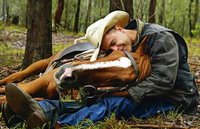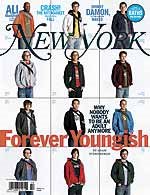I'm in the middle of (again) going through my manuscript and correcting tiny mistakes and typos. They weren't in there a year ago, but one of the ways I fixed the book--or at least attempted to make it more of what it was meant to be in the first place--was to break it apart, into chapters and narrative threads, tracing different imagery in different colored pencils, reading section by section out of order, and backwards, trying to find the blind spots, or the brownouts as they were. You sort of shake it into pieces until you can see it with new eyes.
After all this breaking business, I re-typed the manuscript into a new document, all of it, every page. I think that re-doing caused a lot of new mistakes. But it was important to re-order the book in my brain. The exercise allowed me to re-learn the book in the proper order, and I found some dramaturgy mistakes--conflicting weather, clothing that changes inexplicably--which I was suddenly able to see.
It's exciting--reading your book with such new eyes--but it's also infuriating, because you feel a little bit like a bad writer. You can't imagine why you missed all these things before. On one page I found I had written nowhere, as now here. Twice.
At some point during the revising, the revising and revising, you begin to see through the pages, and because you know it so well, your brain fills in the missing parts. It doesn't matter how many times you've gone over it, how many spell checks, how many hours pouring over it with a red pencil, on planes, busses, trains--even a boat at one point during the book's genesis.
All of this so important, of course, because the final product should look (and read) as if there was no work put into it at all. Or, rather that the seams are invisible. "Imagine you're frosting a cake," Alex Chee, said to me once.




